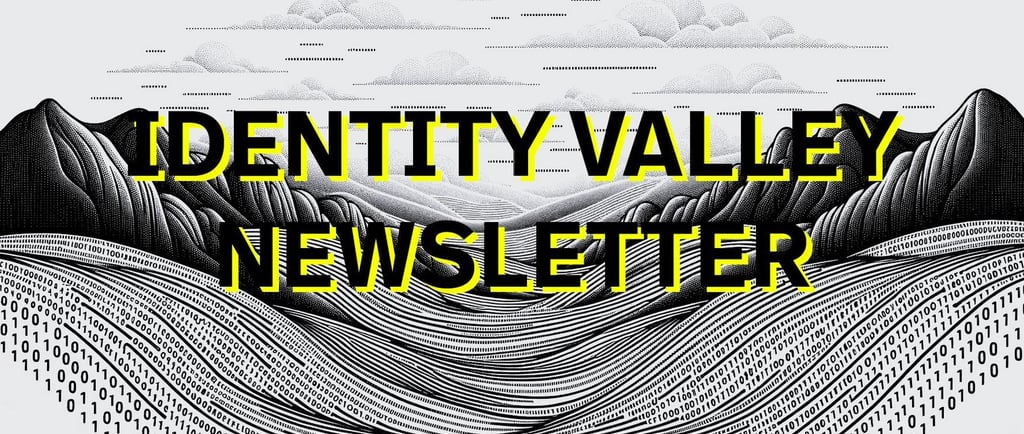IDENTITY VALLEY NEWSLETTER #7
NEWS
9/15/2025


From Hype to Hope: AI for the Public Good
Billions are wasted on AI fluff while democracy runs on fax machines
by Ferdinand Ferroli
For years, AI was pitched as an inevitable revolution that would transform every sector overnight. Billions poured into incremental improvements and dubious benchmarks, while headlines warned of vanishing jobs. But cracks in this narrative are showing.
An MIT study found that 95% of corporate GenAI pilots flop – not because the tech is useless, but because it’s bolted onto old workflows, producing flashy demos that never scale. Gartner now places GenAI firmly in the “trough of disillusionment.”
Still, money gushes into AI companions, assistants, and AI entertainment, while civic uses remain overlooked. Yet these are where the biggest wins for society may lie.
Take the UK government’s pilot of the AI system Humphrey: It helped government staff analyse thousands of public consultation responses, saving weeks of work. Albania “appointed” an AI-driven “minister”, to keep public procurement corruption-free. Surely, not all these experiments will succeed, but the potential for cutting costs, modernising public services and democratic responsiveness is real.
Many compare the current climate with the dot-com bubble. The lesson for the public sector this time must be not to retreat when the hype deflates, but to attract and redirect investment where it matters. Democratic institutions adapt notoriously slowly: the German parliament only ditched fax machines last year. This time, we should be quicker and bolder, using the AI hype to renew democratic infrastructure.
That push doesn’t need to come from governments alone. Civil-society organisations like the Collective Intelligence Project show how GenAI can foster participation and better policy feedback loops.
Imagine if even a fraction of the billions spent on chatbots-as-friends went to upgrading democratic infrastructure. AI won’t “fix” democracy, but it could make it stronger, fairer, and more efficient – if we start investing in the right places.
Ideas worth sharing
Social media pulls off “the greatest heist of all time” - stealing your time and maybe your lifespan. Engineered mazes evaporate hours, while aging accelerates. Escaping means swapping scrolling for real experiences
AI-native nonprofits are redefining scale. Jacaranda Health, for example, provides personalised maternal health guidance to mothers across Africa at $0.74 per person. Early adopters show how AI shifts impact from thousands to millions.
In China, patients are turning to AI doctors. For a transplant patient, chatbot DeepSeek feels more humane than humans - yet experts find dangerous errors. The promise and peril of medical AI.
The Temasek x Resaro Forum reveals that guardrails don’t slow innovation -they accelerate it. By exposing blind spots and promoting modular standards, leaders showed how trust can actually speed deployment.
Charlie Warzel on AI as mass delusion: reanimated chatbots, job upheaval, and digital spaces flooded with synthetic content. A surreal mix of hype and disorientation defines our AI moment.
Connect & Share
As we are always looking to find like-minded people and expand the responsible tech community subscribe to this newsletter if you want to stay connected or share if you think someone else might be interested.
Subscribe here
Hidden gem
Every day, computers are making people easier to use.
- Tagline of 1990s publication In Formation
(they are having a comeback)
Tools in focus
Apertus is a new open source, multilingual AI model developed by Swiss researchers from EPFL, ETH Zurich, and the Swiss National Supercomputing Centre (CSCS) as part of the Swiss AI Initiative that aims to challenge the dominance of proprietary systems like ChatGPT while prioritizing transparency.
Some upcoming events
JSeptember 18, Berlin
European Resilience Summit
September 22–25, Bamberg
European Conference on Information Literacy (ECIL)
October 2, London / online
75th Anniversary of the Turing Test
October 14, The Hague
European Resilience Summit
October 22–23, Brussels
DRG4Food Final Conference
October 22–23, Frankfurt
Annual Privacy Forum 2025
Für generelle Fragen:
info@identityvalley.org
Für job-bezogene Fragen:
jobs@identityvalley.org
Kontakt
Folgen Sie uns
Als gemeinnützige Organisation verpflichten wir uns in allen Aktivitäten zu höchsten ethischen Standards. In unserer Zusammenarbeit mit Partnern aus Wissenschaft, Politik und Wirtschaft setzen wir auf transparente, faire und kartellrechtskonforme Praktiken – von Forschungskooperationen über Vernetzungsformate bis zu Standardisierungsinitiativen.
Bei all unseren Aktivitäten bemühen wir uns um den Einsatz vertrauenswürdiger digitaler Technologien, um so digital verantwortungsvoll zu handeln. Gelegentlich, wenn es keine Alternative gibt, greifen wir auf weniger wertorientierte digitale Lösungen zurück. Wir arbeiten jedoch kontinuierlich an einer Welt, in der vertrauenswürdige digitale Lösungen immer weiter verbreitet sind.


©Identity Valley 2025